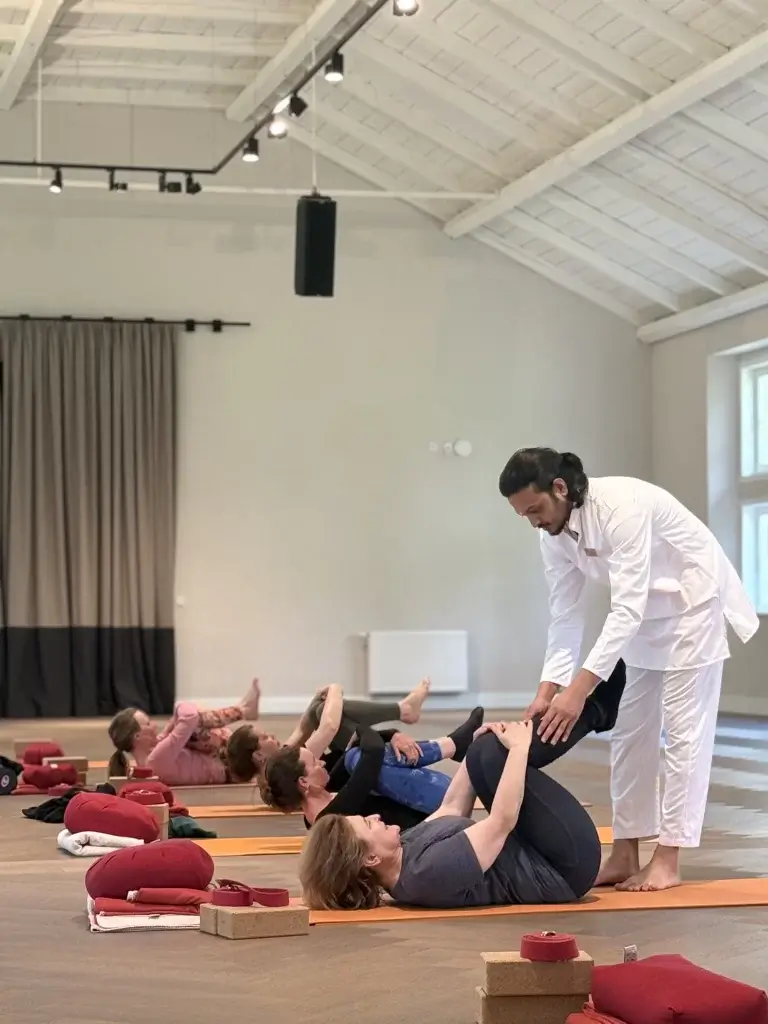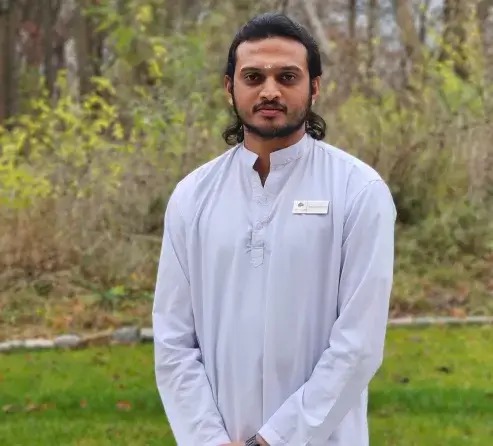

Do you feel like you need a reset physically, mentally, and emotionally? Now that we live in a fast-paced world, yoga has found favor with many individuals as a road to inner peace and holistic health through asanas and mindfulness. But where should one begin? That is where beginner yoga retreats enter, the gateway for a more mindful and balanced life.
An example of yoga retreats for beginners is not just about twisting into poses. It is a design experience that exposes you to the beginnings of yoga in a nurturing and immersive setting. Once you have beautiful yet serene surroundings, distinguished teachers, and a well-structured yet easy-going-paced program, you may very well begin your journey into yoga with confidence, clarity, and compassion.
Yoga retreats are set periods when one gets away from their daily routine, usually into a calm, peaceful environment, to focus on various healing arts, yoga, and meditation. Yoga retreats for beginners offer an immersive experience that brings core benefits such as improved focus, reduced stress, and a deeper connection to self.
1. A Safe, Supportive Environment
Traditionally, many newcomers see their first class as daunting. This makes a retreat a safe, almost free space for people to develop at their own pace. For those who have never done a sun salutation or cannot finish touching their toes, it’s an amicable welcome to all.

2. Personalized Instruction
Because of retreats often having smaller class sizes, experienced teachers can take their time to correct posture, create modifications, or offer one-on-one assistance that is appropriate for your level.
3. Connection with Nature
Mostly, yoga retreats are set up in calming natural settings-by the beach, amongst the woods, or by the calm lake. Nature grounds your nervous system and accentuates the healing process.
4. Holistic Learning
A beginners’ retreat does not merely consist of practical yoga but can at times also include other activities, such as asanas and mindfulness, pranayama or breathing techniques, meditation, mindful eating, journaling, and an overview of spiritual philosophy.
5. Time to Reset
Distinguished from weekly classes, a retreat allows one to temporarily escape the realities of mundane life. No phones or e-mails interfere; the social compulsions are put on hold, and you start tuning inward to reconnect with yourself.
Yoga retreats for beginners offer a harmonious blend of physical postures (asanas) and mindfulness practices. Together, they create a powerful toolkit for overall well-being.
Physical Benefits
Mental Benefits
Emotional & Spiritual Benefits
If you’re considering your first yoga retreat, here are some expert tips to make your experience truly transformative:
Before the Retreat
During the Retreat
After the Retreat
We have supporting props like soft and hard cushions, stretchable and non-stretchable straps, hard and soft blocks, bolsters, and moon pillows that help beginners practice asanas and mindfulness with ease, making it simpler to perform postures and sit comfortably during meditation and pranayama, keeping the spine erect and reducing the risk of injury.
Beginning something altogether new brings about uncertainties. Enter a yoga retreat, and you step into a place where every inhale, movement, and moment exists purely for your well-being. With yoga, you do not just learn how to practice; you learn to practice conscious living. Book your mat today with retreat Park Am See ayurveda Germany.
Yoga retreats for beginners are designed to be your second set of hands instead of your challenge. Nature will heal you while you will be under the guidance of experienced yogis and the upliftment of a like-minded community. Most important of all, you will ascertain a deeper insight into yourself.
So run with it. Let the silence of this forest or the gentle lapping of water in the lakes guide you inward. Asanas and mindfulness will lead you back to your breath and hold you in the now.
Your journey need not be perfect. It only needs to have its inception.
Yes, absolutely! Yoga is for everyone, regardless of your background. You don’t need to be athletic or flexible, just start where you are. Beginners are welcome, and yoga helps you grow gradually in strength, balance, and awareness.
No. Yoga has no age limit. From kids to seniors, anyone can practice yoga. The key is to choose the right style and level suitable for your age and physical condition.
Yes, yoga can be very beneficial for managing lifestyle diseases. It helps with blood pressure, blood sugar, stress, and more. However, it’s important to consult with your doctor and inform your yoga teacher about your condition.
Yoga supports weight loss by improving metabolism, reducing stress, and increasing awareness about food and lifestyle. Some forms like Power Yoga or Vinyasa burn more calories, but even gentle yoga helps with long-term weight balance.
Yoga is a mind-body practice that combines physical movement, breathing exercises, and relaxation. It’s not just exercise, it’s a way to feel better, move better, and live more peacefully.
Yoga helps with:
Yoga For Beginners – Jason Scotts
Hatha Yoga Pradeepika – Muktibodhanada Swami
Light On Yoga – Bks Iyenkar
